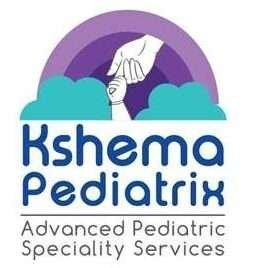Pediatric Gastro & Hepatologist in Bangalore
Dr. Nagendra Kumar

☑️ MBBS. MD (Pediatrics), PDCC, DM (Ped gastro, SGPGI), Liver transplant experience
☑️ Extensive experience in the managing children with gastrointestinal and liver conditions. Overall, 13 years experience in Pediatric Gastroenterology.
☑️ First Pediatric gastroenterologist from Karnataka to complete DM in Pediatric gastroenterology.
☑️ Special interest in therapeutic endoscopy, inflammatory bowel disorders, chronic liver disease and liver transplant.
☑️ Engaged in National treatment guidelines, teaching modules and text book chapters.
A Sneek Peak into our Clinic




Testimonials
What Our Little Patients Say
“You’re the nicest doctor ever! Can you be my doctor forever?”
Doctor is very cooperative.
Clinic has plenty of toys for the kids to play.
Also, kids get chocolates for the consultation 🙂
Am thankful to Dr Ramesh, who has around 30 years of experience and highly excellence in pediatric surgeon.
My son had complicated hydrouretero nephrosis at the age of 2 and half years and he treated this very well and we bit worried at that moment. The way he was given assurance , we felt very happy and feel free . Now my son is 13 years old and there is no any health problems till now and as our concern , he is one of the Best paediatric surgeon. .. and he is the Best doctor.
Finally I would like to say Thank you for saving my child.
Fill the Form below to get in Touch
Pediatric Gastro & Hepatologist in Bangalore
The liver is the largest internal organ in a child’s body and has several functions, including digestion, metabolism, waste removal, and storage of nutrients needed by other organs. The liver in children helps with rapid growth, metabolises medication, and controls body function. But liver problems in young children can develop quickly and can have mild symptoms that are ignored, unlike in adults. Hence, pediatric liver care is a highly specialised and vital field in contemporary medicine.
There has been an increase in the number of liver-related problems among infants, children, and teens over the last decade, in part because of an increase in viral infections, metabolic disorders, genetic diseases, and lifestyle changes. Diseases such as neonatal jaundice, hepatitis, extrahepatic bile duct atresia, and paediatric fatty liver disease are becoming more and more common. Without treatment, most of these diseases will result in chronic, progressive liver disease, or, more rarely, acute liver failure; the earlier the diagnosis and therapy, the better the chance for recovery.
This is when a pediatric hepatologist will come in handy. The pediatric hepatologist in Bangalore is a doctor who specialises in diagnosing, managing, and treating liver and biliary diseases in children from birth through adolescence. They have expertise in pediatric gastroenterology and hepatology, providing age-appropriate, specialised care.
Early referral and intervention by a pediatric hepatologist can lead to favourable outcomes. With an accurate diagnosis, personalised approaches to treatment, and regular monitoring of the child’s condition, most childhood liver conditions can be well-managed and may even be eliminated. Parents who observe prolonged jaundice, abdominal bloating, poor appetites, or otherwise inordinate levels of fatigue in their child, symptoms of potential liver problems, are urged to consult with a provider.
In a place like Bangalore, where some of the country’s best children’s transplant teams and best liver care facilities are already in place, it’s now easy for people to facilitate world-class treatment for liver problems among children. Focusing on liver health now can prevent serious complications and lead to a happier, healthier future for your child.
What is a Pediatric Hepatologist?
A pediatric hepatologist is a doctor with specialised training to diagnose, treat, and manage children from infancy to young adulthood with liver, biliary tract, and metabolic diseases. Specialist Physicians Unlike generalist paediatricians who address a broad range of childhood diseases, pediatric neurologists and hepatologists have deep knowledge of the liver in health and disease, including liver failure and liver diseases unique to children. Their work is paramount in getting young patients the correct treatment for conditions that can be rare, complicated, or deadly.
To help clarify this difference, we can compare pediatric gastroenterology and hepatology. And while both would be the go-to specialists for digestive issues, a pediatric gastroenterologist treats a spectrum of gastrointestinal problems, ranging from matters related to the stomach and intestines. A pediatric hepatology physician, meanwhile, concentrates specifically on the liver, gallbladder, bile ducts, and metabolism. In many instances, hepatology is classified as a subspecialty of pediatric gastroenterology, with fellows requiring additional training and certification.
Pediatric hepatologists receive comprehensive education and further training in liver, biliary, and metabolic diseases of children, as well as differences in presentation and treatment compared to the same diseases in adults. They have expertise in the interpretation of pediatric liver function tests, the management of complex liver disease, and the delivery of individualised therapies. Their training frequently involves exposure to the pediatric intensive care unit, neonatal hepatobiliary disease, and liver transplantation.
A child liver specialist has the responsibility of looking after children who are potential candidates for liver transplantation. From the time of pre-transplant assessment to post-transplant care, pediatric hepatologists play a crucial role in every step of the transplant process. They collaborate with a multidisciplinary team, which may include transplant surgeons, pediatric intensivists, and nutritionists, to provide comprehensive and coordinated care.
Whether it’s addressing diseases such as biliary atresia, hepatitis, or metabolic liver disorders, or helping families navigate the challenges of transplantation, a pediatric hepatologist is a vital ally in protecting a child’s liver health.
Diseases Treated by Pediatric Hepatologists
A pediatric hepatologist diagnoses and manages various liver and biliary disorders in infants, children, and adolescents. These are of different complexity: from frequent diseases like neonatal jaundice to highly severe conditions like acute liver failure or hepatic tumours. Early detection and management by a pediatric liver specialist can lead to significant health outcomes and improved quality of life.
Physiological Liver Enlargement in the Newborn: Most Common Liver Disorders of Childhood
Neonatal Jaundice: Among the most common liver diseases in children, neonatal jaundice is characterised by high levels of bilirubin in newborn infants. Although it is common, intense, prolonged jaundice may suggest an underlying liver problem, which may need to be evaluated by a child liver specialist.
Viral Hepatitis (A, B, C, D): Viral hepatitis is a liver disease caused by a viral infection. Hepatitis in children may manifest symptoms of fatigue, jaundice, abdominal pain, and anorexia. Pediatric hepatologists treat both acute and chronic hepatic infections and also prevent them from developing into a more severe form of disease.
Biliary Atresia: A rare but serious condition in which the bile ducts are obstructed or missing, and this leads to the buildup of bile in the liver and damages it. Early detection and treatment for biliary atresia, such as Kasai procedure and liver transplant, are required for survival.
Wilson’s Disease: An inherited disease in which there is accumulation of copper in the liver and other organs. Untreated, it can lead to severe liver damage and neurological problems. It is a life-long disease and needs life-long medicines and monitoring.
Autoimmune Hepatitis: A disease in which the body’s immune system mistakenly attacks the liver, resulting in long-term inflammation and scarring of the liver. The condition is treatable with immunosuppressive therapy, which pediatric hepatologists can use to prevent lasting damage.
Liver Diseases Due To Metabolic & Genetic Causes
Glycogen Storage Disease (GSD): A type of inherited condition that affects the way the body breaks down and stores glycogen. These may lead to swelling of the liver and low blood sugar levels. Individual diet and medical treatment are essential.
Alpha-1 Antitrypsin Deficiency: A genetic disorder that can harm the liver and lungs. In children, HCV infection may manifest as persistent jaundice, hepatomegaly, or liver failure in the most serious cases.
Hemochromatosis: Uncommon pediatric metabolic liver disease that causes too much iron to build up in the liver over time and may cause cirrhosis if not diagnosed and treated in time.
Serious Conditions
Tumours of the liver: Hepatoblastoma and hepatocellular carcinoma are common liver tumours in children, which mandate a multimodal approach that comprises various treatment modalities, surgery, chemotherapy, and sometimes liver transplant. Timely detection of progress, with the aid of a pediatric hepatologist, is imperative for a better prognosis.
Acute Liver Failure: A sudden loss of liver function due to infection, poisons, or metabolic diseases. It’s a medical emergency that requires immediate care, usually in an intensive care unit, and may lead to getting on a list for a liver transplant.
Chronic Liver Disease and Cirrhosis: Long-term liver damage in children can cause scars (cirrhosis) and loss of liver function. Management is supportive, aiming to treat the cause, avoid complications, and assess for liver transplantation if necessary.
In short, pediatric hepatologists receive specialised training to diagnose and manage a wide range of liver issues in children, from common infections to complex genetic and metabolic liver conditions. Every stage of a child’s illness is addressed with appropriate, efficient, and caring expertise.
When Should You See a Pediatric Hepatologist?
Certain liver disorders in kids can be asymptomatic or can resemble other, more common maladies, which can make receiving a timely diagnosis difficult. Early identification of signs of liver dysfunction and early referral to pediatric liver services is associated with improved outcomes. But how can parents tell when it’s time to visit a pediatric liver specialist?
Preliminary Symptoms in Kids
Many of the signs of liver disease in children are subtle, yet when identified, they can never be ignored. Early warning signs you may be ignoring:
Jaundice That Won’t Go Away: If a newborn’s skin and eyes are yellow after two weeks of age, or if jaundice returns in older children, it may be a sign of liver problems.
Abdominal Fullness: An enlarged liver or fluid-filled abdomen (ascites) may signal severe liver disease.
Pale Stools and Dark Urine: These two are classic symptoms of bile duct obstruction or diminished bile flow, both of which are results of underlying liver or biliary tract disorders.
Loss of appetite and Fatigue: If a child is persistently lacking in energy, won’t eat, or has signs of weight loss, these may also be symptoms of liver-related metabolic stress.
Chronic Symptoms of Liver Issues
Additional signs requiring referral to a child liver specialist are:
Easy bruising or bleeding
Itchy skin (pruritus)
Growth: Poor or slow growth or development milestones
Vomiting and/or recurrent, unexplained fevers.
Role of the Paediatrician in Referral
Your child’s paediatrician will be the first to notice any abnormalities of the liver, based on their complete clinical examination or some routine laboratory investigations, such as liver function tests (LFTs). According to the findings, the paediatrician may refer your child to a pediatric hepatologist for further evaluation and management. This referral is crucial in cases of chronic or progressive disease or when there is suspicion of a congenital or familial liver disease.
Recognising the signs of a liver problem in children – and taking early action – can help children avoid more serious health complications and aggressive treatments down the road. If you notice any of the signs above in your child, it’s a good idea to consult with your child’s paediatrician and consider a referral to a specialist in liver care for a timely work-up.
Best Pediatric Hepatologists in Bangalore
An experienced, board-certified, or eligible pediatric hepatologist is essential for the management of complex liver diseases in children. Bangalore boasts some of the best pediatric liver specialists in India and has state-of-the-art hospitals equipped with world-class facilities for pediatric hepatology and liver transplantation. Here are a couple of the most trusted names in this area.
Dr. Ashritha A – Aster Hospitals, Bangalore
One of the best pediatric hepatologists, Dr. Ashritha A, is renowned for her expertise at Aster Hospitals, Bangalore. A highly versatile Pediatric Gastroenterologist & Hepatologist with vast experience in handling complicated liver, biliary, and metabolic disorders in kids.
Her expertise extends to:
Management of the pediatric liver transplant recipient
Novel hepatobiliary diagnostics
Managing uncommon metabolic and autoimmune liver disorders in childhood
Dr. Ashritha has obtained clinical exposure in liver practice from India and other countries to be able to adhere to and carry out international protocols in liver management. Her caring attitude and detail-oriented treatment make her the preferred choice for parents looking for a leading child liver specialist in Bangalore.
Rainbow Children’s Hospital, Department of Hepatology, Bangalore, India
A team of experienced and the best pediatric liver surgeons in South India is available at Rainbow Children’s Hospital. The hospital, which is home to a multi-speciality liver transplant team, brings together the skills of pediatric hepatologists, transplant surgeons, anesthesiologists, and critical care physicians to provide comprehensive, integrated care.
Key highlights include:
South India has two of the highest volumes of pediatric liver transplants
Very high survival and superb, long-term results
The state-of-the-art facilities include those of the pediatric ICU, liver labs, and transplant coordination specialists.
Families around the country turn to Rainbow because of its proven history and comprehensive approach to liver health. From treating biliary atresia, chronic liver disease, or acute liver failure, their seasoned pediatric hepatologists deliver clinical prowess and emotional support to children and families.
Top Pediatric Hepatology Centers in Bangalore
When liver disease is diagnosed in a child, access to a specialised, multidisciplinary care facility is of utmost importance. On the brighter side, Bangalore has some of the best pediatric hepatology hospitals in the region. These centres can provide a full range of care from diagnosis to paediatric liver transplant, including seasoned professionals and high-quality facilities.
Aster Hospitals Bangalore (CMI / RV / Whitefield)
Integrated for Liver Care Program by Aster Hospitals is available at Aster CMI, Aster RV, and Aster Whitefield. The service is set up to care for children with complex liver and metabolic conditions from diagnosis to aftercare.
Key Highlights:
Specialised resources for pediatric liver transplants
Specialisation in metabolic liver diseases and hereditary diseases
Dr. Ashritha A and other international pediatric liver specialists have been treated.
Specialities: pediatric ICU and liver transplant coordination units
A new pediatric environment for reducing hospital stress
The liver team at Aster works as a single unit, consisting of hepatologists, pediatric surgeons, anaesthetists, and dieticians, to offer comprehensive care to each child.
Rainbow Children’s Hospital – Bengaluru
Rainbow has a proud distinction of being one of the best pediatric liver transplant hospitals in Bangalore and the highest in terms of pediatric liver transplants and pediatric liver transplant surgery in South India. Their collaborative liver service provides what it describes as evidence-based, international protocol liver care, with full patient service across the acute and chronic liver spectrum.
Key Features:
Specific Pediatric Liver Transplant Program with excellent survival percentages
24×7 NICU & PICU Support for critical care support
Liver function testing, imaging, liver biopsy, and interventional radiology are all performed in-house
Transplant follow-up clinics (LT and chronic liver)
The multidisciplinary liver team at Rainbow has extensive experience, comprising hepatologists, gastroenterologists, intensivists, and transplant surgeons, to provide the exact proper care.
Other Notable Mentions
Manipal Hospitals Pediatric Gastroenterology Wing: At this setup for all liver and GI issues in children, patients have access to pediatric gastroenterologists, liver imaging, surgery, and beyond.
Justdial Listings: When parents query for a “liver specialist near me” or a “pediatric hepatology doctor”, websites like Justdial provide not only user reviews and ratings but also contact details for finding the right specialist or hospital. Always double-check hospital qualifications and patient referrals.
Whether you are looking for pediatric hepatology hospitals in Bangalore for diagnosis, ongoing liver care, or transplant assessment, these centres are capable of offering advanced and comprehensive medical care for every child.
Diagnosis and Liver Function Evaluation in Children
The timely and correct diagnosis is of utmost importance in pediatric liver care. Unlike adults, clinical findings in children are often inconspicuous or atypical for liver-related alterations. It is therefore imperative to have a more systematic assessment of liver function to prevent further development and to initiate treatment as early as possible. At specialised centres in Bangalore, evaluation of pediatric liver disease is done systematically using a multi-modal approach.
We value our patients and are committed to providing the best possible care.
Outlining the initial investigations assessing liver function in pediatric patients consists of Paediatric Liver Function Tests (LFTs), which reflect the metabolic and synthetic function of the liver. These include:
Bilirubin: Increased values may indicate that bile flow is being blocked or that liver cells have been damaged.
ALT (Alanine aminotransferase) and AST (Aspartate aminotransferase): The principal enzymes that indicate liver cell damage.
Albumin: Elevated levels indicate that the liver is failing to produce proteins.
INR (International Normalised Ratio): Measures the liver’s production of clotting factors; abnormalities can indicate late-stage liver disease.
In children, LFT is naturally the first step for diagnosing conditions such as hepatitis, biliary atresia, or metabolic diseases.
Imaging and Biopsy
Beyond blood tests, imaging and biopsy are so crucial for diagnosing liver disease in children:
Pediatric Ultrasound: A noninvasive and routine method to identify derangements of liver architecture or flow.
MRI and MRCP: Sophisticated imaging approaches for the assessment of liver parenchyma and bile ducts.
Liver Biopsy in Children: This is the gold standard for diagnosis. It assists in assessing fibrosis, inflammation, and specific conditions such as autoimmune hepatitis or metabolic liver diseases.
Genetic and Metabolic Testing
When hereditary or metabolic diseases are suspected, genetic and metabolic workups are recommended. A third can diagnose rare diseases such as Wilson’s disease, alpha-1 antitrypsin deficiency, and glycogen storage disorders — often before symptoms progress beyond early signs.
The First Defence Against Damage – Getting Diagnosed Early
It is essential to diagnose this condition early in childhood to prevent long-term liver damage. Late diagnosis makes complications such as cirrhosis, liver failure, or emergency transplantation likely. With the availability of state-of-the-art investigation facilities at pediatric hepatology centres in Bangalore, many of these children can be diagnosed in the early stages and treated successfully, resulting in better outcomes and a higher quality of life.
Treatment Options Offered by Pediatric Hepatologists
A variety of treatment modalities, including medical treatment, dietary therapy, surgery, and long-term follow-up, are required for the management of liver disease in children. There are several pediatric hepatology centres and specialists in Bangalore that provide a full array of treatment options to help children with chronic as well as acute liver disorders stay healthy and improve their health.
Medical Management
Conservative Medical Therapy: Medical management of pediatric liver disease is often first attempted to halt the progression of the disease and to control a child’s symptoms:
Antiviral drugs: Prescribed for viral hepatitis, including Hepatitis B and C, these medications help control the virus and prevent further damage to liver cells.
Medication for Autoimmune Hepatitis: Children with autoimmune hepatitis are treated with drugs such as corticosteroids and azathioprine, which help to suppress liver inflammation and immune attacks.
Nutritional and Vitamin Therapy: Since liver diseases interfere with the absorption of nutrients, pediatric hepatologists collaborate with dietitians to formulate high-protein, low-salt, and vitamin-fortified diets (particularly vitamins A, D, E, and K). This is particularly important in pathologies such as cholestasis and metabolic liver diseases.
Surgical & Advanced Care
Certain liver diseases involve complex or surgical treatments:
Paediatric Liver Transplantation: In children, if medical therapy is not successful and/or liver failure occurs, liver transplantation is considered the cure. Specialists in liver transplantation are in constant communication with pediatric hepatologists in Bangalore to assess, counsel, and manage children before and after transplantation. Hospitals like Rainbow and Aster have successfully performed pediatric liver transplants, resulting in a high survival rate.
Pre-Transplant and Post-Transplant Care: This includes the treatment of infections before and after transplantation, nutritional support, assessment for transplant readiness, and initiation of immunosuppressive therapy pre-transplant to prevent organ rejection after transplantation.
Interventional Endoscopy: In specific diseases, such as portal hypertension, pediatric hepatologists may also employ endoscopic techniques to treat variceal bleeding and biliary disease. DBEs are performed in cooperation with pediatric gastroenterologists and surgeons, as these are minimally invasive treatments.
Long-Term Surveillance and Follow-up Programs
For chronic liver disease, surveillance is essential to monitor the progression of the disease and to adjust therapy. Children with liver disease are followed up in regular clinics run by pediatric hepatologists, which include the following:
Observation for Arrest of Growth and Development
Modifications of the drugs depending on the stage of liver function
Testing for complications, including cirrhosis, infection, or transplant rejection
Such preventative actions allow children not only to recover from liver damage, but also to live successfully with maintained liver health.
Preventive Pediatric Hepatology: Diet & Lifestyle
Treat is not more critical than preventing liver disease in children. For pediatric hepatology, preventive liver health involves reducing disease risk through the promotion of good nutrition and timely vaccination, as well as minimising exposure to environmental hazards. Pediatric hepatologists partner with families to help them make easy lifestyle choices that lead to a healthy liver and prevent long-term effects.
Significance of Good Eating in Maintaining a Healthy Liver
It is essential to have a healthy liver diet in the case of the pediatric group to ensure good liver function and prevent disease in the organ. Good eating habits that focus on the foods your liver loves can help protect it from toxic substances, infections, and conditions that can lead to damage. Eating a healthy diet filled with fruits, vegetables, whole grains, and lean proteins can:
Promote healthy liver function and detoxification.
Prevent swelling in the liver
Strengthen overall health and immunity
Pediatric hepatologists also say that it is a good idea to cut the amount of sugar children drink, particularly those at risk for fatty liver disease, which has become more common among older children and adolescents.
Hepatitis A & B Vaccinations
Immunisations are key to protecting children from liver disease. Both Hepatitis A and Hepatitis B vaccines are required to protect our children against viral infections that can result in chronic liver disease. These vaccines are recommended by the American Association for the Study of Liver Diseases as part of the routine vaccination schedule to reduce the risk of long-term liver-related consequences, such as cirrhosis or liver cancer, according to pediatric hepatologists.
Obesity and Fatty Liver in School-Aged Children
With the increase in obesity, fatty liver has been on the rise among children, especially among older children. Maintaining a healthy weight through a proper diet and daily physical activity helps prevent the onset of non-alcoholic fatty liver disease (NAFLD). Pediatric hepatologists frequently collaborate with dietitians to establish appropriate feeding regimens for optimal weight gain and growth, ensuring that all essential nutrients are provided to developing children.
Preventing Infection and Toxic Exposure
It’s not just about a good diet; avoiding infections and toxic exposures is also crucial for maintaining liver health. Parents are advised to:
Maintain hygiene and access to safe water to prevent Hepatitis A
Teach children to stay away from poisonous substances such as medicine and chemicals
Promote frequent handwashing to reduce the likelihood of foodborne infections
Through an emphasis on proactive care, combined with liver-friendly lifestyle elements, families can ensure their children’s best chance for future liver health.
Frequently Asked Questions (FAQs) About Pediatric Hepatology
Pediatric liver health is a topic that raises many questions among parents. Whether you’re concerned about a specific liver condition, seeking guidance on when to visit a pediatric hepatologist, or just curious about liver health in children, the following FAQs provide valuable insights into common concerns regarding pediatric hepatology and liver disease in children.
A pediatric hepatologist is a doctor who specialises in the diagnosis, treatment, and management of liver diseases in children. These experts are another set of paediatricians, but who also specialise in liver, biliary, and metabolic diseases in children. Pediatric hepatologists treat concerns like viral hepatitis, biliary atresia, liver failure, and genetic liver diseases in children.
Although pediatric hepatologists and pediatric gastroenterologists manage disorders of the digestive system together, they approach these conditions in distinct ways. A pediatric gastroenterologist is a paediatrician who has received specialised training in treating the stomach, intestines, and oesophagus. Instead, a hepatologist focuses solely on the liver and the biliary system. However, many hepatologists also manage what are known as “bleeding GI” cases, so they are proficient in both.
Specialists in pediatric hepatology have experience in all of the following:
Viral Hepatitis (A, B, C, D)
Jaundice in the first 6 weeks and biliary atresia
Autoimmune hepatitis
Glycogen storage disease, Wilson’s Disease, and other liver metabolic diseases
Persistent liver disorders such as cirrhosis and liver failure
Liver tumors
Liver transplantation
These practitioners will help families develop their individualised treatment plans to manage and treat these disorders.
Yes, a lot of babies can do well and heal from liver damage if they are diagnosed early and get treatment. Certain conditions, such as neonatal jaundice, are known to be transient and cure with proper medical care. But in some instances — such as acute liver failure or biliary atresia — more aggressive interventions, such as liver transplant, are sometimes necessary. Early detection and proper treatment are the key to recovery.
One of the most common pediatric liver diseases is neonatal jaundice, where the newborn’s liver does not effectively metabolise bilirubin. Another common disease is viral hepatitis, with special reference to Hepatitis A and Hepatitis B. In older children, conditions related to obesity and metabolic conditions (such as nonalcoholic fatty liver disease / (NAFLD)) are encountered more often.
If your child has symptoms such as prolonged jaundice, abdominal distension, dark urine, or pale stools, it is essential to see a pediatric hepatologist. Furthermore, if a child needs special treatment or long-term treatment due to a diagnosis of liver disease, if the necessity exists, it would be a good idea to meet a liver specialist. Intervention at an early stage can help avoid complications and enhance the probability of successful treatment.
The majority of liver diseases in children are manageable and treatable with the appropriate care. Things like viral hepatitis can typically be brought under control with antiviral drugs. Some liver diseases, like autoimmune hepatitis, could be controlled with immunosuppressing medications. Liver transplantation is the only cure in cases of liver failure and extensive damage, which has high success rates, primarily if performed early. However, the prognosis varies depending on the condition and its severity, and not all responses to treatment are equally successful.
The prognosis for children who receive a liver transplant is usually excellent, particularly at well-known centres where experienced staff perform the surgery. In Bangalore, hospitals like Rainbow Children’s Hospital and Aster Hospitals have success rates of more than 85-90%. Most of the children who undergo transplant can lead a healthy life. Success depends mainly on a child’s general health and the cause of the liver failure, as well as on post-transplant care.
How to Choose the Best Pediatric Hepatologist in Bangalore
Selecting the appropriate pediatric hepatologist for your child is a vital first step in safeguarding your child’s liver health. The following factors could be of immense help for you to choose the best liver specialist in Bangalore:
Experience and Expertise
A competent pediatric hepatologist would have gained further training in the field of pediatric hepatology, including liver diseases and liver transplantation. Seek doctors who have completed special fellowships and have experience in the treatment of children with acute and chronic liver diseases.
Reasonable Experience in Liver Transplant
If you need a liver transplant for your child, select as your hepatologist someone who has a lot of experience in pediatric liver transplants. Hospitals like Aster and the Rainbow are famous for their top-of-the-section, high success rate teams for transplant surgeries.
Hospital Affiliations
The level of care provided in the hospital where the pediatric hepatologist works is also significant. Leading hospitals, such as Aster Hospitals and Rainbow Children’s Hospital, provide comprehensive liver care and transplant services through a team of expert specialists.
Reviews and Testimonials
Patient reviews and testimonials can be a great way to learn about a doctor’s bedside manner, treatment success, and office practices. Search for reviews on JustDial, Practo, Google Reviews, etc., to understand other parents’ experiences.
By taking all these factors into account, you can choose wisely and select the best pediatric liver doctor in Bangalore for your child.
Book an Appointment Today
If your child is experiencing any symptoms of liver disease, or if you would like to make sure the liver is functioning correctly, don’t wait for liver help for kids — prevention is always better. Visiting a pediatric hepatologist at leading hospitals such as Aster Hospitals or Rainbow Children’s Hospital can transform your child’s liver health.
Embark on your child’s journey to a better future by meeting with the best liver specialists in Bangalore today.


